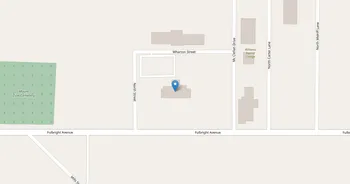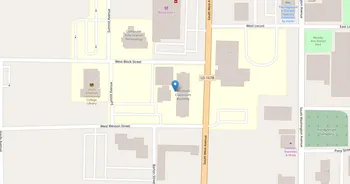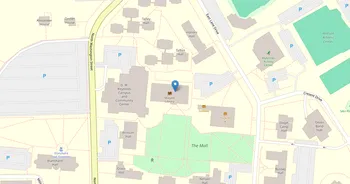Shorter College : Overview, Courses, Scholarships & Rankings
About Shorter College
Shorter College, an HBCU with African Methodist Episcopal roots in North Little Rock, is known for a supportive, teaching-first approach. Students build a strong liberal-arts foundation alongside practical skill-building in communication, technology, and community-centered studies. The campus offers a compact mix of classrooms, a library and learning labs, with tutoring, advising, and financial-aid counseling that feels personal. The vibe is close-knit and purpose-driven, with reflective gatherings that nod to its faith-informed heritage.
Student life leans active and friendly: student-led clubs, service projects, and laid-back intramurals, plus easy access to riverfront trails and the local arts scene. Career preparation is hands-on, with resume help, internships, and ties to employers across the Little Rock metro. And the location pays off; government offices, hospitals, nonprofits, and growing small businesses are right nearby. Shorter has a reputation for welcoming first-generation and returning adult learners, and that shows in its day-to-day care.
Key Institutional Details
Contact & Profile
Academic & Institutional
Academic Programs & Fields of Study
Shorter College offers 5 degree programs across 5 major academic fields, graduating approximately 41 students annually. The most popular fields by graduate volume are Business (1 programs, 22 graduates), Liberal Arts (1 programs, 10 graduates), Security & Safety (1 programs, 5 graduates), Philosophy (1 programs, 3 graduates) and Human Sciences (1 programs, 1 graduates). Explore program details, award levels, and graduate demographics below.
Business (1 programs, 22 graduates)
Business Administration, Marketing and Entrepreneurship
| Program Name | Graduates | Gender Distribution | Award Levels | CIP Code |
|---|---|---|---|---|
| Entrepreneurship Studies | 22 |
|
Associate's
|
52.0701 |
Liberal Arts (1 programs, 10 graduates)
Liberal Arts Education, General Studies and Humanities
| Program Name | Graduates | Gender Distribution | Award Levels | CIP Code |
|---|---|---|---|---|
| General Studies | 10 |
|
Associate's
|
24.0102 |
Security & Safety (1 programs, 5 graduates)
Emergency Management, Law Enforcement and Public Safety
| Program Name | Graduates | Gender Distribution | Award Levels | CIP Code |
|---|---|---|---|---|
| Criminal Justice Administration | 5 |
|
Associate's
|
43.0103 |
Philosophy (1 programs, 3 graduates)
Philosophical Studies, Ethics and Religious Thought
| Program Name | Graduates | Gender Distribution | Award Levels | CIP Code |
|---|---|---|---|---|
| Christian Studies | 3 |
|
Associate's
|
38.0203 |
Human Sciences (1 programs, 1 graduates)
Family Studies, Consumer Sciences and Human Development
| Program Name | Graduates | Gender Distribution | Award Levels | CIP Code |
|---|---|---|---|---|
| Child Development | 1 |
|
Associate's
|
19.0706 |
Tuition, Fees & Estimated Costs
Overview of tuition rates, housing, and other annual education expenses for undergraduate and graduate students
Financial Aid & Student Support
Summary of scholarships, grants, student loans, and financial aid statistics for undergraduate students
Student Success Metrics
Graduation rates and post-graduation earnings to help assess student outcomes and long-term value of education.
Loan Burden & Repayment Outcomes
Breakdown of loan repayment rates and student debt levels by income and dependency status.
Frequently Asked Questions
Find answers to the most common questions about Shorter College
How much does it cost to attend Shorter College?
The annual tuition at Shorter College is $6,245 for in-state students. When including room and board, books, and other expenses, the total estimated cost is approximately $23,218 for in-state students. Additional costs include room and board $9,744 and books and supplies $650.
Data based on IPEDS program completions for 2022-2023 academic year. Tuition and cost estimates are approximate and may not include all fees, personal expenses, or transportation costs.
What academic programs and degree levels does Shorter College offer?
Shorter College offers 5 academic programs across 5 major fields of study, with available degree levels: Associate's.
Most popular program areas include:
- Business Administration, Marketing and Entrepreneurship (1 programs)
- Liberal Arts Education, General Studies and Humanities (1 programs)
- Emergency Management, Law Enforcement and Public Safety (1 programs)
- Philosophical Studies, Ethics and Religious Thought (1 programs)
- Family Studies, Consumer Sciences and Human Development (1 programs)
Data based on IPEDS program completions for 2023-2024 academic year. Numbers reflect programs where students graduated, not all offered programs.
What financial aid and scholarships are available at Shorter College?
Shorter College provides financial aid to 35% of first-time, full-time students, with average grants of $5,792 and average loans of $8,977.
Average financial aid amounts by type:
- Pell grants: $5,819
- Institutional grants: $2,496
- Federal loans: $8,977
The university supports 112 students with grants and 85 students with loans annually.
Data based on IPEDS for 2022-2023 academic year. Financial aid amounts and percentages may vary by program, enrollment status, and individual circumstances.
What is the average salary for Shorter College graduates?
Shorter College graduates earn a median salary of $15,710 after 6 years.
Data based on IPEDS for 2022-2023 academic year. Salary data reflects graduates who received federal financial aid (approximately 60% of all graduates). Actual earnings may vary significantly based on program, location, and individual circumstances.
Related Universities




Found something useful? Help others discover it too! Share with friends, on social media, or save for later - every share helps someone find the information they need.